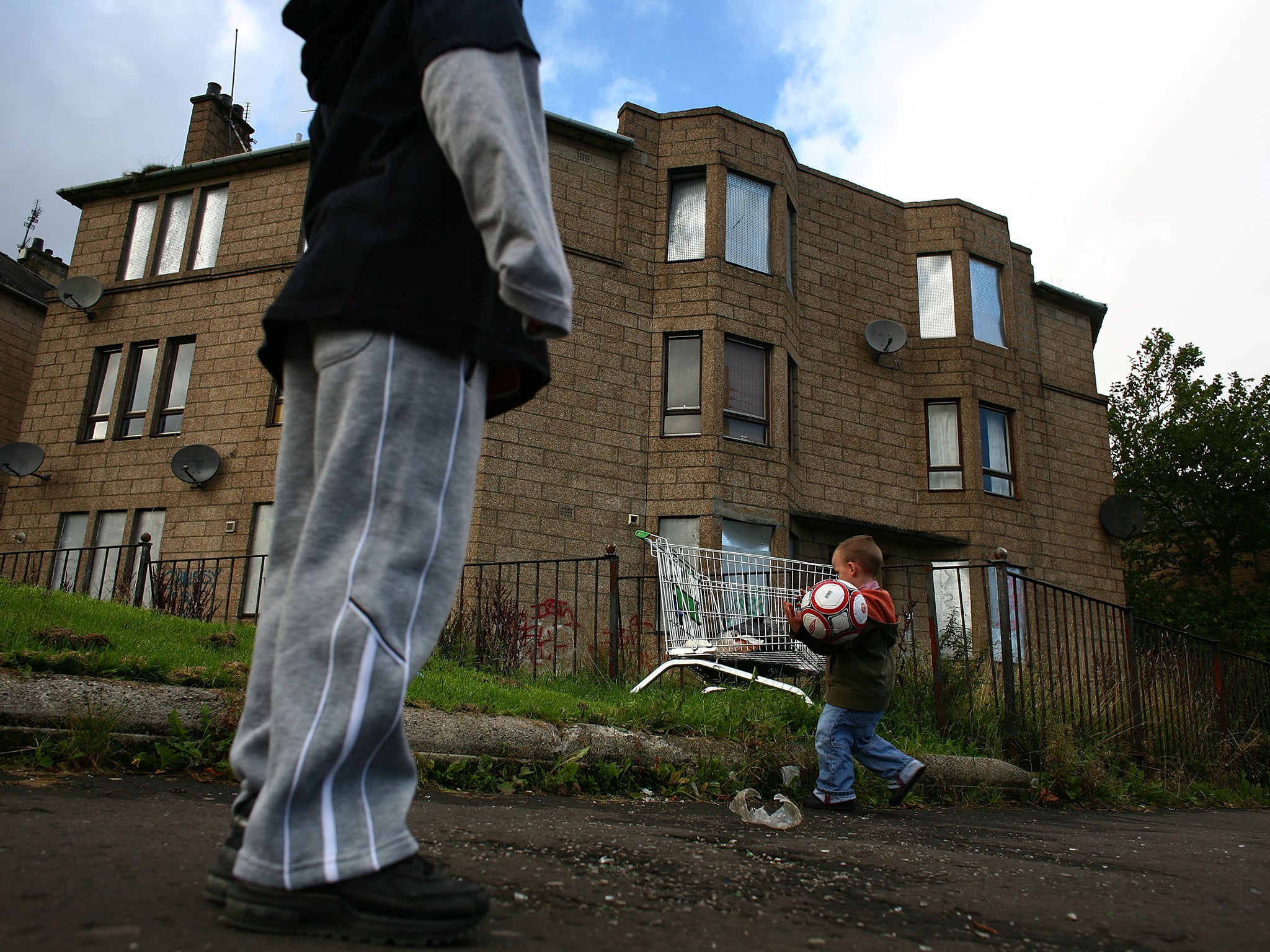Incomes below the living wage for two out of five families
Findings will reinforce calls for pressure to be put on employers everywhere to pay all their employees a living wage

Almost two out of five families with children are struggling on incomes below what is judged necessary for a socially acceptable standard of living – a huge jump since the start of the recession in 2008.
Data collected by the Joseph Rowntree Foundation shows that about 8.1 million parents and children are living off incomes that cannot adequately cover minimum household budgets – an increase of more than a third on the 2008-09 figure of 5.9 million.
The findings renew the political argument about how to restore living standards to the level that they were before the recession. The Conservative solution is to aim to get everyone of working age into some sort of employment, an ambition that David Cameron will restate in a speech today. Labour argues that it is not just the number of jobs that are available that matters, but what sort of jobs they are and how well paid.
The findings will reinforce calls for pressure to be put on employers everywhere to pay all their employees a living wage and not just the lower national minimum wage, which is enforceable by law.
The report reveals how single-parent households in particular are bearing the brunt of the recession. Researchers based at Loughborough University calculated that 71 per cent of lone parents – 2.3 million individuals – are living off inadequate incomes.
Childless working-age households, especially younger adults, were also hit in the immediate aftermath of the recession because job prospects were poor. Their prospects may improve as the economy recovers, but working families with children will continue feeling the effects of cuts in benefits.
To address this widening gap between rich and poor, the Foundation wants the national minimum wage increased in line with both the rising cost of living and increases in average earnings, and for employers to pay the living wage when they can afford to. It also wants the benefits system adjusted so that people on low incomes can keep more of what they earn before they start losing benefits. Alan Milburn, the former cabinet minister who now chairs the Government’s Social Mobility and Child Poverty Commission, said the research was “further evidence of the impact stagnating wages and fiscal consolidation is having on living standards of poor families”.
Mr Cameron will today reveal more details from the manifesto on which the Conservatives plan to fight the May election, repeating the Tory theme that more jobs and more new businesses are the key to future prosperity.
He will promise that if the Conservatives form the next government, they will triple the number of StartUp loans available for those setting themselves up in business to at least 75,000 by the end of the next parliament. So far, about 25,000 loans have been issued under the scheme, creating an estimated 32,000 jobs.
“The Conservatives are the party of small businesses,” he is expected to say. “We’re the party of the roofers and the retailers; the builders and the businesswomen. We’re the ones who back people who strike out on their own, take the risks, and create wealth and jobs in our country. These are people we admire and want to help. Other parties preach about this sort of stuff; but we’re the ones who really deliver.”
Measuring minimums: Rowntree’s method
To work out how much a family needs to enjoy a decent standard of living, the Joseph Rowntree Foundation applies what it calls a Minimum Standard Income. The list of basic needs – which includes food, heating and housing – has not changed much since it was drawn up in 2008 but prices have risen 28 per cent without a corresponding increase in wages or benefits. The Foundation calculates that a lone parent with one child now requires an income of £27,100, while a couple with two children need £20,200 each.
The question of how to define deprivation has troubled the Coalition in the past. Iain Duncan Smith, the Work and Pensions Secretary, claims that Labour’s system of measuring poverty relative to the rest of the population, offers a skewed picture of household finances.
Subscribe to Independent Premium to bookmark this article
Want to bookmark your favourite articles and stories to read or reference later? Start your Independent Premium subscription today.

Join our commenting forum
Join thought-provoking conversations, follow other Independent readers and see their replies